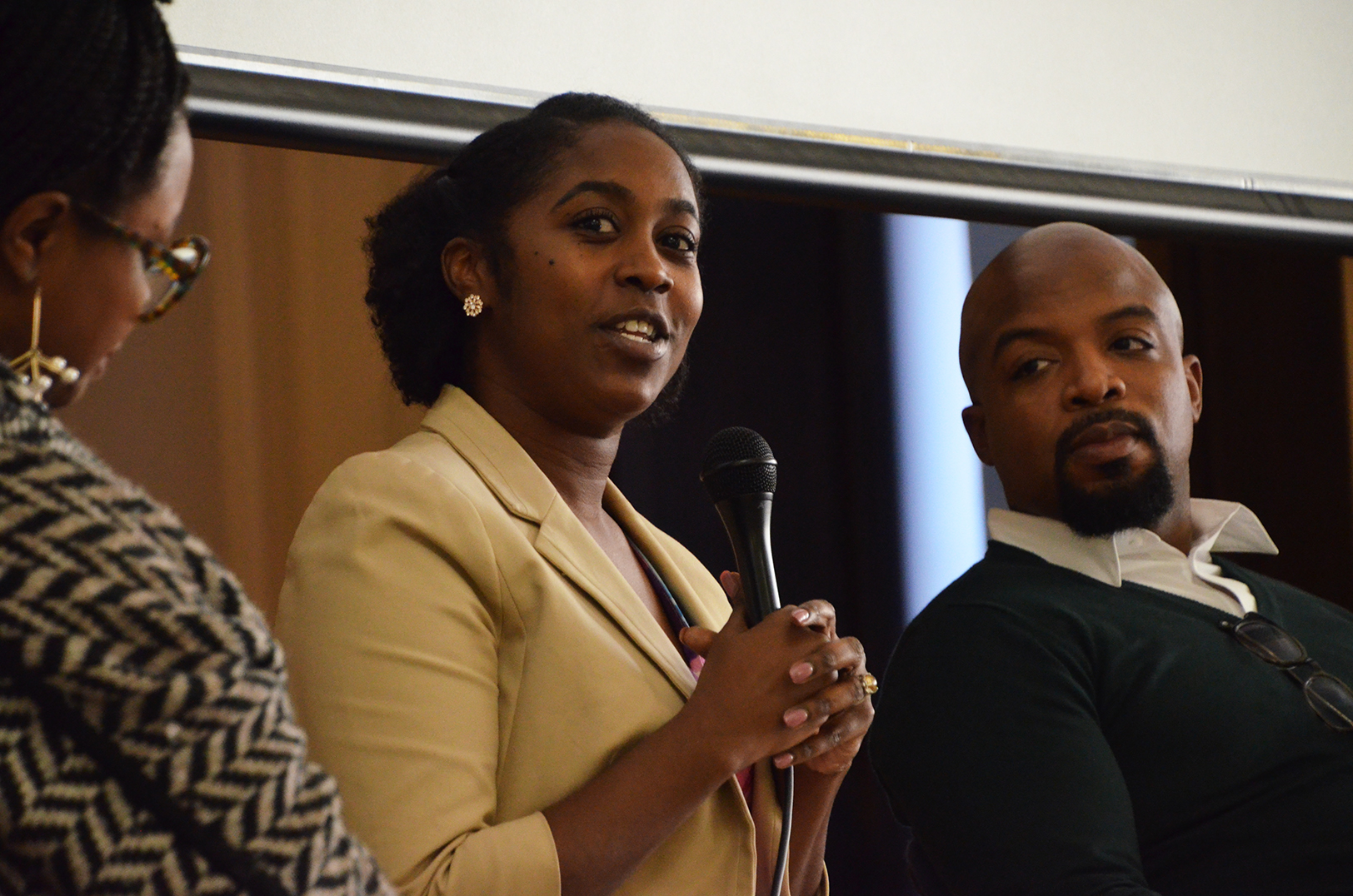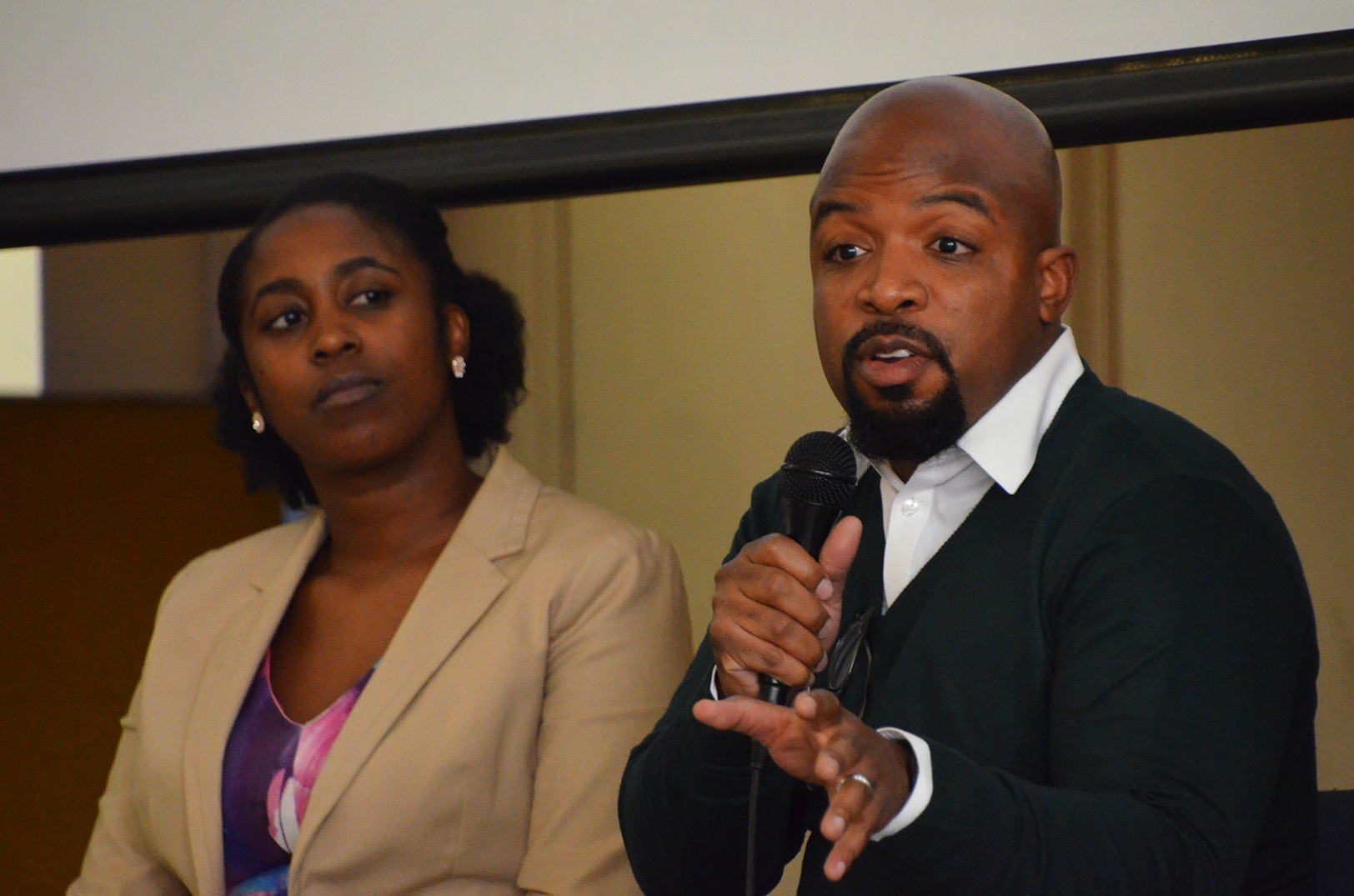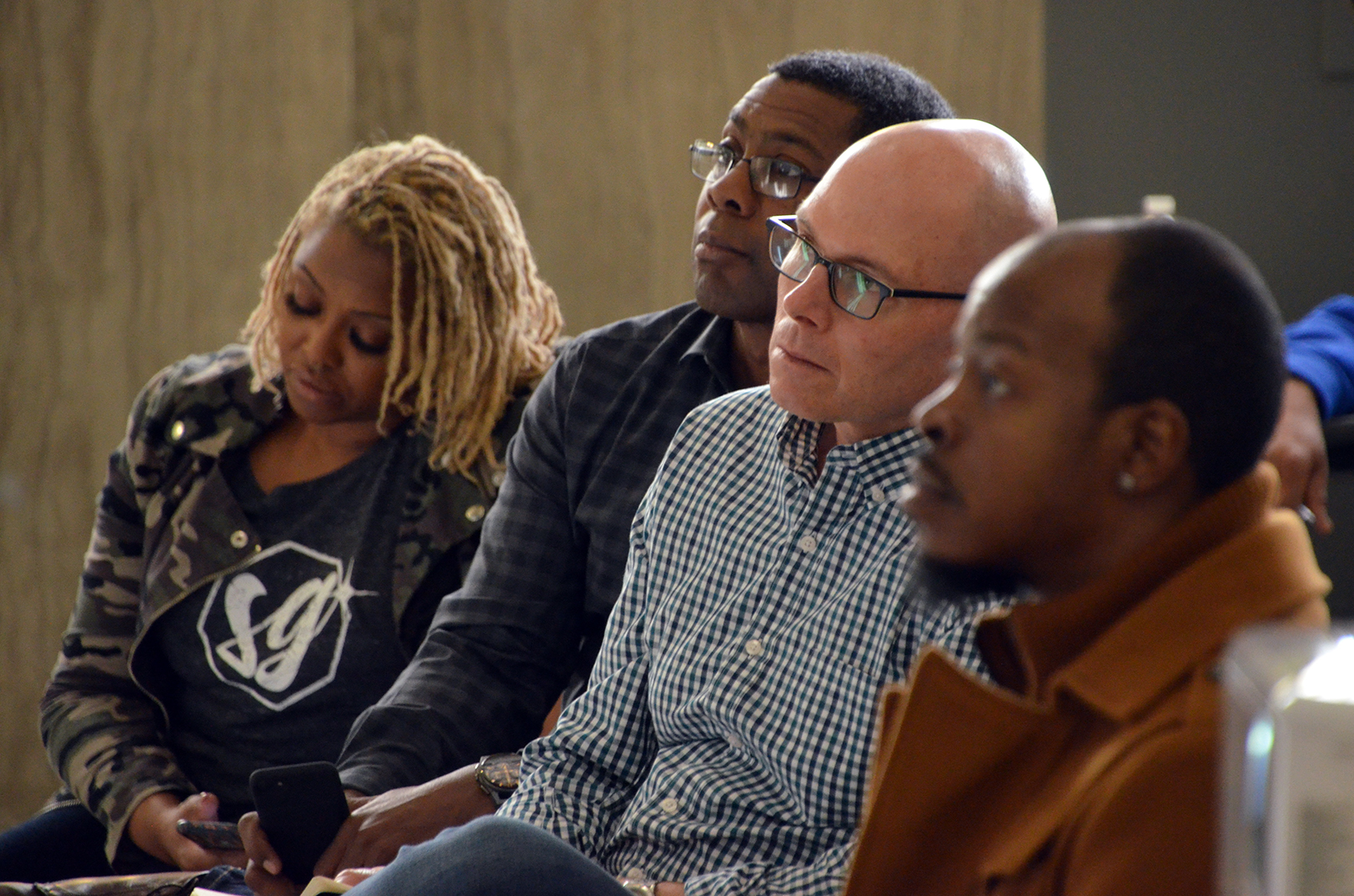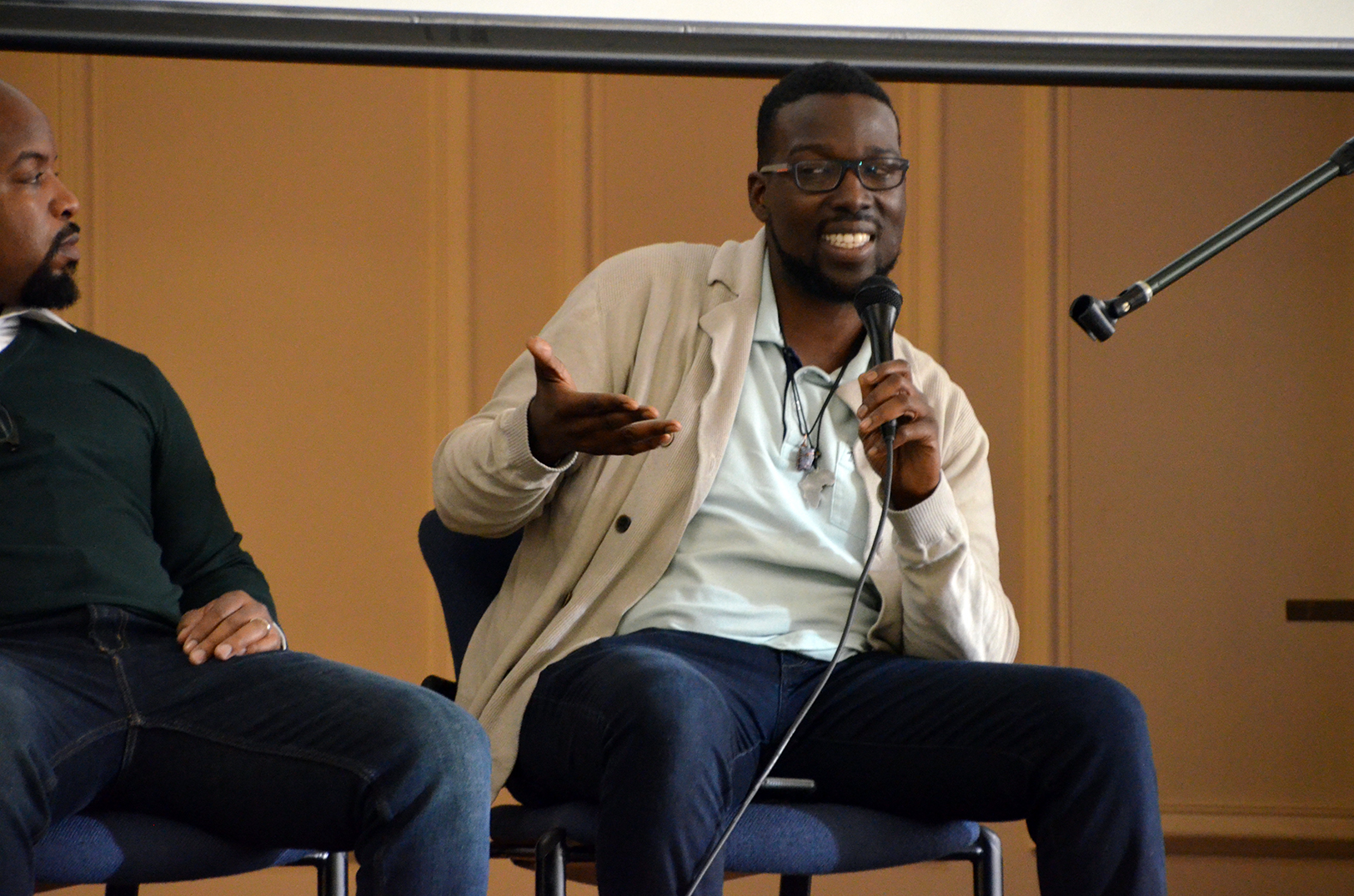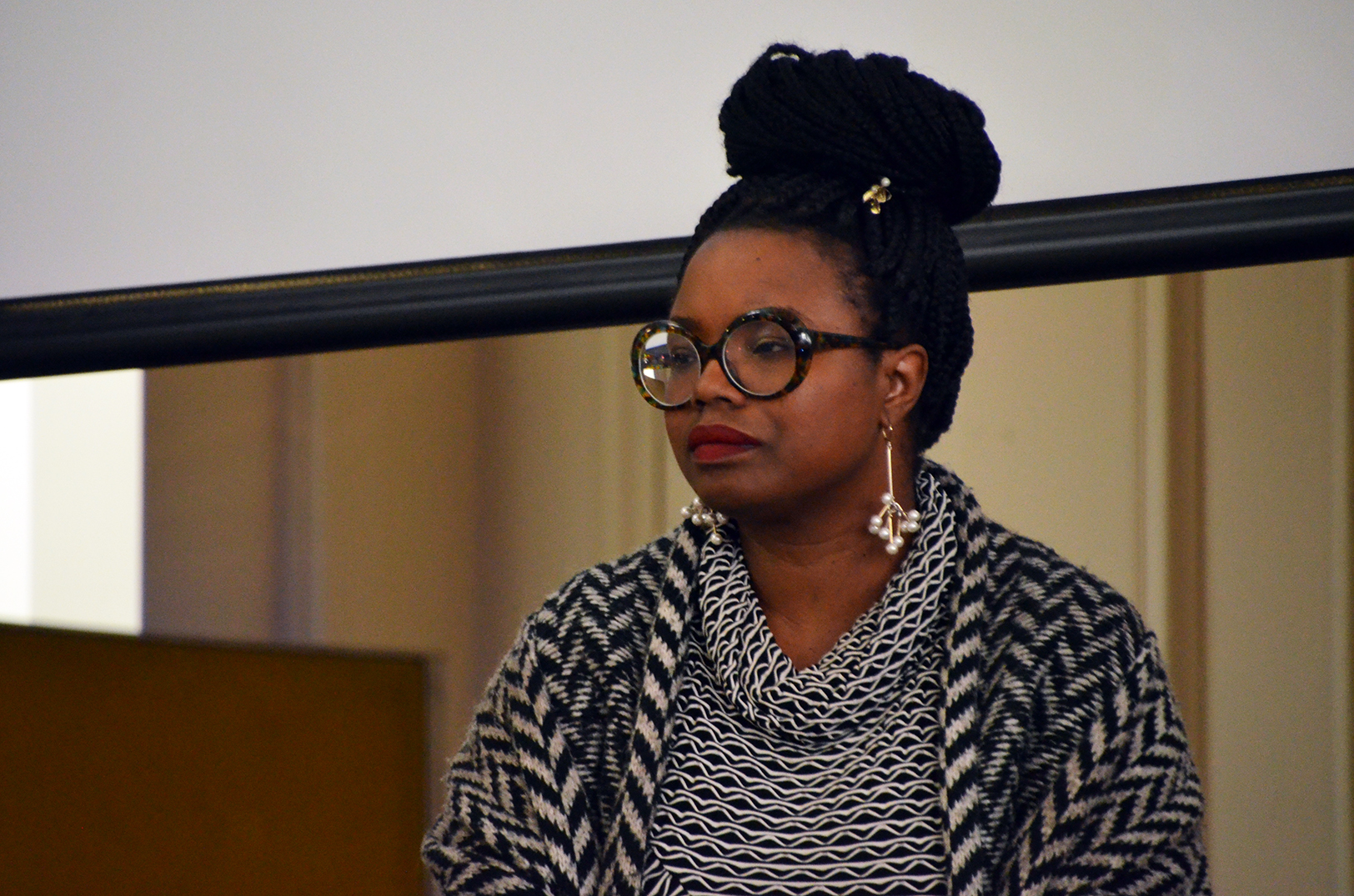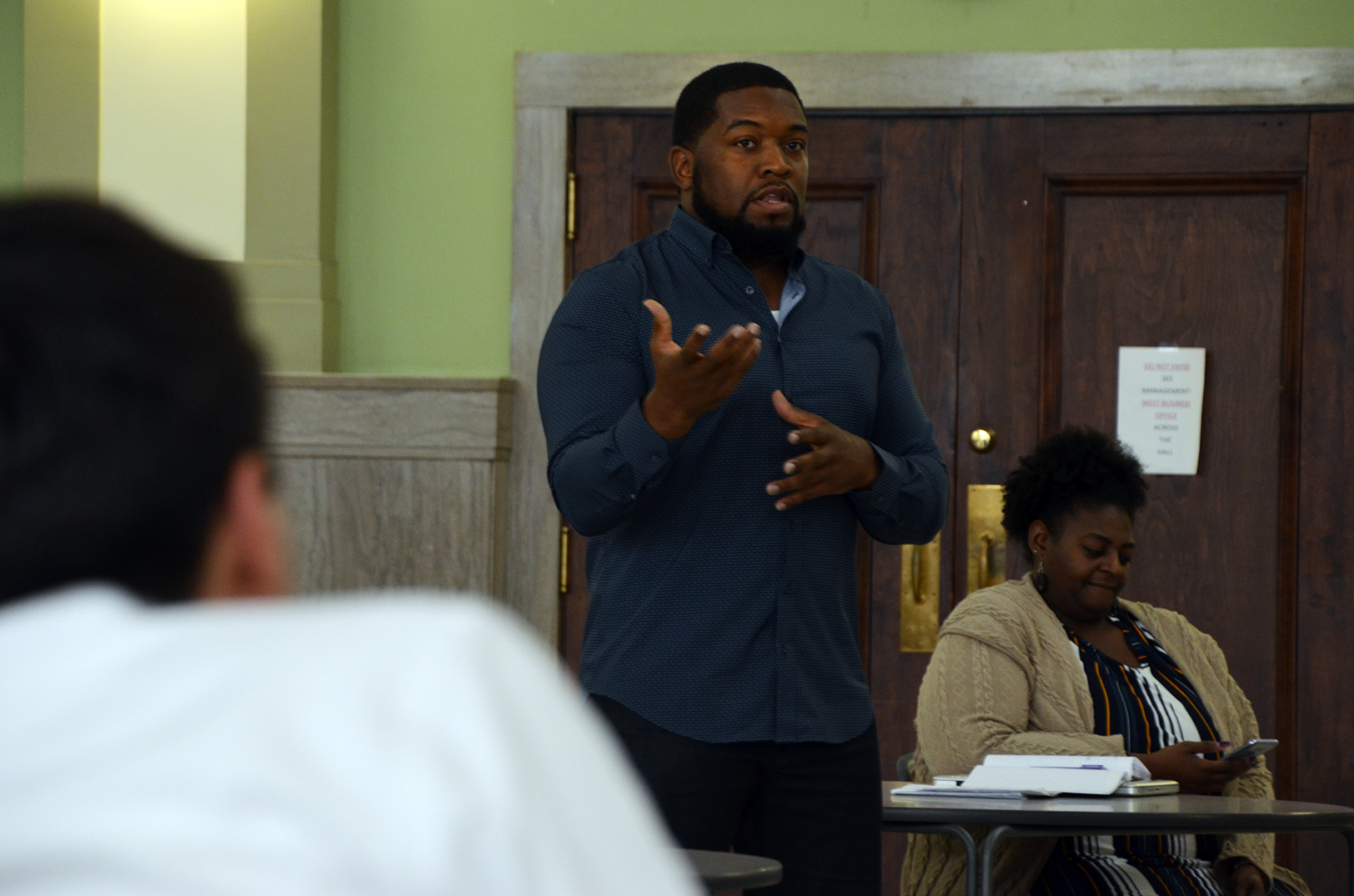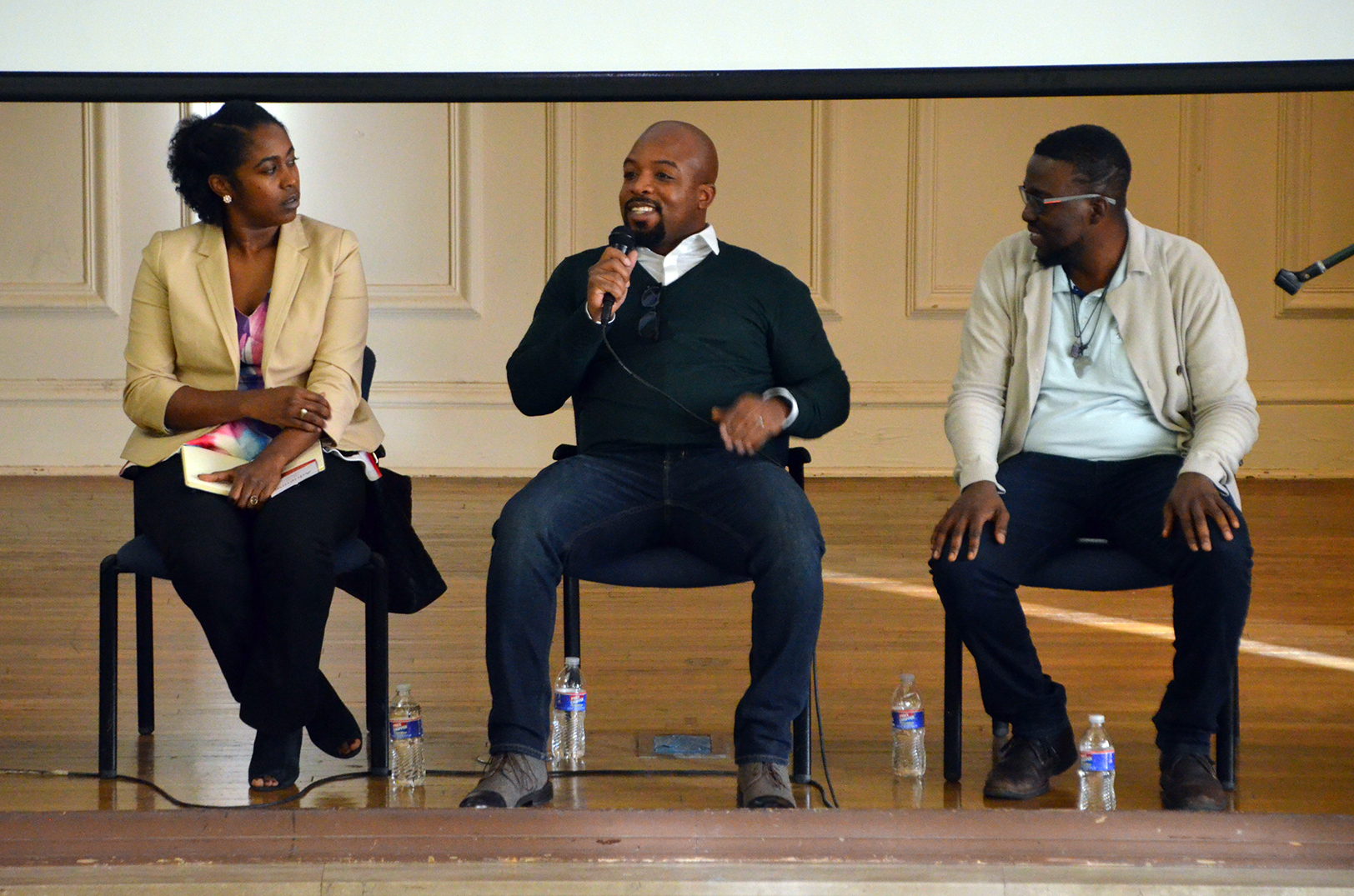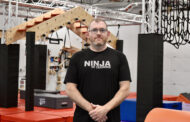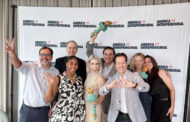Most entrepreneurs operate within silos, said Adrienne Haynes, noting that black-run startups face particular — though not insurmountable — challenges becoming embedded in the Kansas City startup scene.
Seemingly approachable community events and coworking spaces aren’t always as open as organizers think, added Quest Moffat, founder of Project United Knowledge, joining Haynes and Donald Hawkins, CitySmart founder, Friday for a BlackTech Weekend KC panel at the Mohart Multipurpose Center.
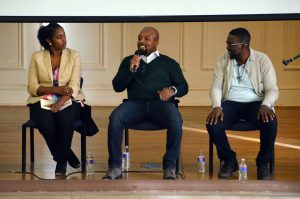
Adrienne Haynes, SEED Law; Donald Hawkins, CitySmart; Quest Moffat, Project United Knowledge; BlackTech Weekend KC
The trio of black startup leaders cited Plexpod Westport Commons, WeWork and 1 Million Cups among places where entrepreneurs congregate, but can often feel like exclusive clubs where outsiders are unwelcome.
“When I was [working in law school], I couldn’t go to 1 Million Cups,” said Haynes, founder of SEED Law. “Someone actually told me — this was a black entrepreneur — ‘Yeah, I’ll go to coffee with you after I see you at 1MC a couple more times.’ That could’ve been my opportunity to be like, ‘Oh, I guess I can’t participate.’ No way, I was like, ‘Oh, I’m gonna show that guy.’ That’s the kind of attitude that we have to have.”
The conversation should always be about how to break down walls, she added.
“All of the spaces in Kansas City are our spaces, and they can be spaces for [people of color] to have entrepreneurial relations too,” said Haynes. “It doesn’t have to be a black-only space, but that’s also important. I don’t want to negate that. It is important for us to get into a regular habit of having conversations about, ‘Man, it’s difficult to find resources. What are the best ways?’”
“[Entrepreneurship in black communities] ends with our silence,” she said.
Keep reading after the photo gallery:
The first step in infiltrating silos in startup culture is getting educated and learning the language, said Hawkins, founder of CitySmart, noting that wide gaps exist across the metro where resources and education relating to entrepreneurship is unavailable.
“[Entrepreneurs need to] talk with sophistication when in front of a venture capitalist,” he said. “I’m guilty of that as well — like when I first got started with entrepreneurship many years ago in Atlanta, I was constantly pitching, but the second someone would ask, ‘What kind of capital are you raising?’ I was like, ‘I’m going to get some coffee, I’ll be right back.’”
Many locally owned companies are challenged by their leaders’ inability to translate “venture-speak” or the startup lingo, added Moffat, noting that these specific firms only seek out connections to innovation when applying for grant funding.
“I think that these organizations could create an innovation liaison to reach out to other communities and work on translating the venture capital [language,]” he said.
Founders and small business owners should get the same approval and accolades as professional athletes, said Hawkins, with the navigating of territories that’s required of entrepreneurs.
“I put a lot of work into my business,” he added. “I think in 15 to 30 years, I would love to see people from Kansas City going to places like New York and bringing funding back, and to see exits every couple of months.”
That future doesn’t exist without the resource gaps getting filled, said Moffat.
“I would like to see a paradigm shift in Kansas City, where [entrepreneurs] are knocking down doors like Adrienne said, and finding everyone that has a checkbook,” he said. “We aren’t going to have a 20 or 30 year vision if we don’t build a foundation and start getting the capital and resources and start taking advantage of them.”
“If you have an idea and a strategic way of building it, there is someone in Kansas City that is willing to [help you get] to that multimillion dollar point,” he added.



